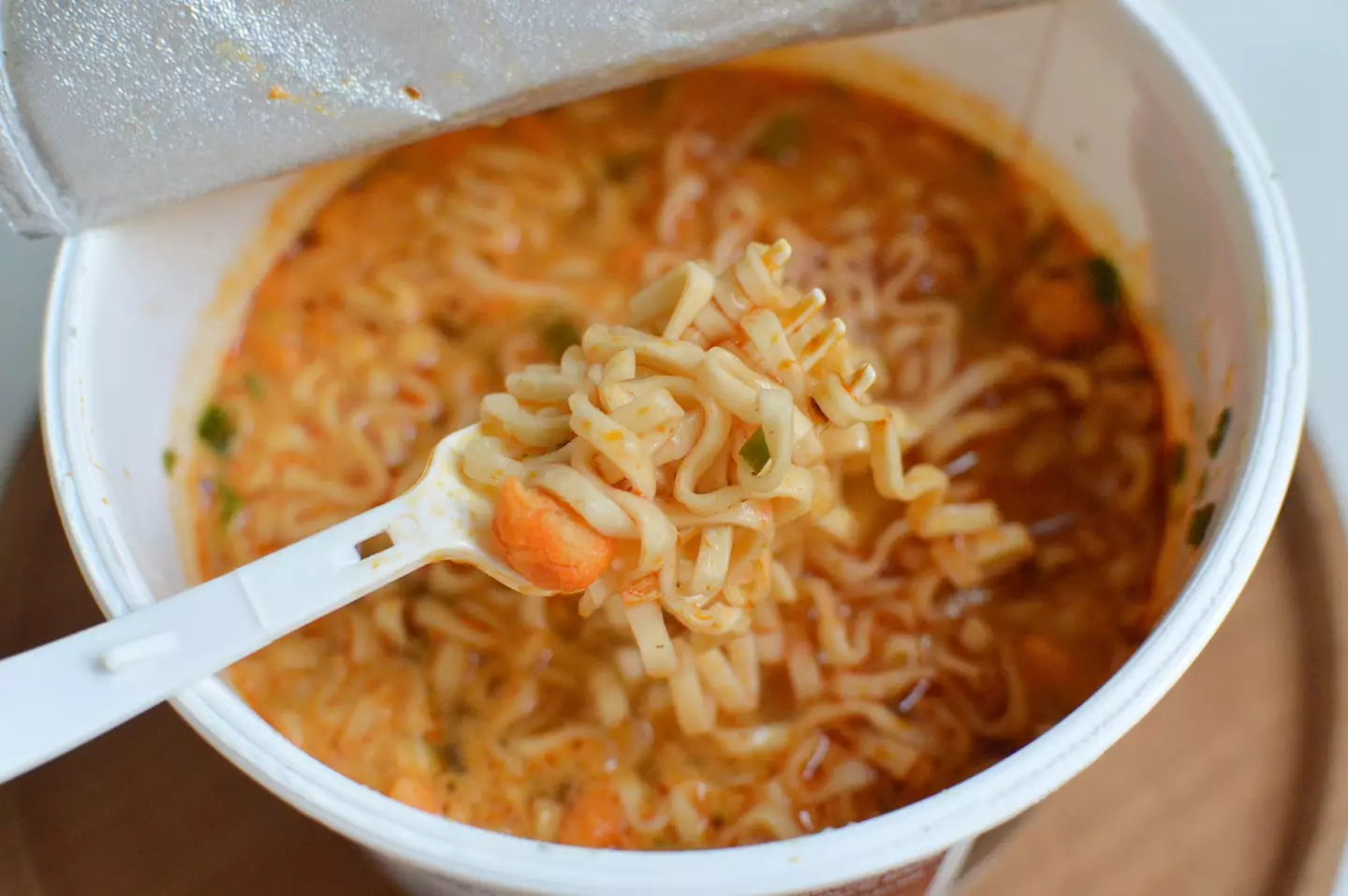
When it comes to keeping cancer at bay, diet can play a big part in your likelihood of dodging a disease that, in some form or another, comes for about 50% of us.
Everyone knows we should be eating lots of fruit and vegetables, limiting our sugar intake, drinking plenty of water, ideally limiting red meat consumption to mitigate the bowel cancer risk.
But there's one common condiment that can have huge impacts on our health, and many of us are eating far too much of it.

An oncology doctor has said that too much salt can dramatically increase our risk of stomach cancers. Sprinkling a little over your dinner is one thing, especially if it’s already been seasoned during the cooking process, but ultra-processed foods (UPFs) typically contain much more salt than you’d find in a home-cooked meal.
Advert
Instant noodles, ready meals, savoury snacks, and fast foods are typically likely to have high salt content, which in itself raises your risk of cardiovascular issues like hypertension, strokes, and heart disease.
According to Dr Tim Tiutan, internal medicine doctor at Memorial Sloan Kettering Cancer Centre in New York, high salt consumption can also raise your stomach cancer risk.
Speaking on Instagram, Dr Tiutan said salty foods can give rise to Helicobacter pylori, a cancer-linked bacteria, as well as general disruption to the stomach lining.
“High salt diets can increase cancer risk by disrupting your stomach lining and fueling H. pylori infections—a major driver of stomach cancer,” said Dr Tiutan in the Instagram reel.
“Excessive salt is associated with increasing stomach cancer risk by 55 per cent and may even double the risk when H. pylori is present.
“'So, reduce your salt intake to one teaspoon per day and try to eat high salt foods like these sparingly.
“Bacon, ham, hot dogs, sausages, deli meats, preserved foods, canned soups, instant noodles.”
He continued: “This isn’t about fear-mongering. Small diet changes can lower cancer risk. Sodium is essential to life, but too much can be harmful.
“High salt intake leads to hypertension and other chronic medical conditions too.
“Sometimes health providers ask patients to take in more salt for various medical reasons, which people should follow.”
The NHS recommends a 6g limit on daily salt intake for adults, equating to just a teaspoon of the stuff, with some research suggesting many of us consume 10 times the amount we need for effective bodily functions.
As for Helicobacter pylori, around 40% of us have it in our stomachs and it’s benign for 80 to 90% of people who carry it. For those whom it negatively affects, it can cause indigestion, bloating, nausea and stomach ulcers.

If you’re carrying it, it can be detected through blood and stool samples, and it can be treated with antibiotics.
The link between salt and heightened risk of Helicobacter pylori complications has been well-established.
As for salt’s potential effect on cancer risk, a 2004 study published in the British Journal of Cancer found that consistently high salt intake could double the risk of developing stomach cancer.
